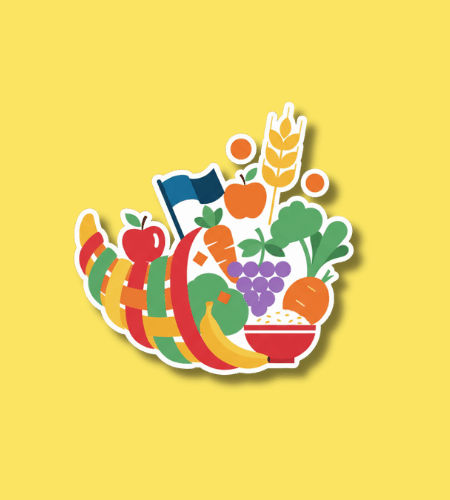The Food and Agriculture Organization of the United Nations (FAO) designates World Food Day on 16 October every year to honor its founding and highlight global challenges of hunger and food security.
History of World Food Day
World Food Day was established in 1979 by FAO’s Member Countries during its 20th General Conference. Its inaugural observance aimed to strengthen efforts to combat hunger, malnutrition, and poverty, and to mobilize global attention and action for food and agriculture. Over time, the day evolved into a platform bringing together governments, civil society, the private sector, and citizens from more than 150 countries.
Since its first celebrations, World Food Day has adopted an annual theme to focus on a pressing issue within the broader ambition to end hunger and build sustainable food systems. The day also commemorates the founding of FAO in 1945, tying the past, present, and future of food and agriculture together.
Why World Food Day is important
Food is fundamental—not just as nourishment but as a foundation for health, dignity, and opportunity. World Food Day reminds us that too many people still suffer from hunger or malnutrition, even though the resources and knowledge exist to do better. It invites us to hold ourselves accountable, to look inward on our food systems and practices, and to ask how each of us can do more.
Furthermore, World Food Day underscores that solving food challenges is not a local or single‑sector issue—it requires coordination across agriculture, environment, health, economics, technology, and policy. When communities, nations, and organizations rally under a common theme, they discover synergies, share innovations, and build momentum that no single actor could muster alone.
Here are some tangible reasons the day matters
- it raises awareness that hunger and malnutrition remain urgent worldwide
- it promotes policies and investments in sustainable agriculture
- it encourages communities to examine food waste and resource use
- it fosters cooperation across sectors and borders
- it connects local actions (like urban gardening) to global goals
How to Celebrate or Observe World Food Day
You don’t need to be an expert to take part. One meaningful step is to raise your awareness: learn about local and global food challenges, and share facts or stories with your community or online. Try to ground your actions in what matters locally—visit or support food banks, community farms, or local growing projects. Even small acts, done with intention, ripple outward.
You can also organize or join events: a food drive, a cooking demonstration using locally sourced or under‑used foods, a workshop on food waste reduction, or a discussion forum about sustainable diets. Partnering with schools, local NGOs, farmers, or community groups makes the work richer—and more connected to real needs.
Some ideas you might try
- volunteer or donate to a local food bank or community garden
- host a meal using surplus or seasonal food and discuss waste
- share a story or poster about hunger, nutrition, or sustainable farming
- organize a discussion or screening about food systems in your area
- pledge to reduce your own food waste or shift to more sustainable foods
World Food Day Dates Table
| Year | Date | Day |
|---|---|---|
| 2026 | October 16 | Friday |
| 2027 | October 16 | Saturday |
| 2028 | October 16 | Monday |
| 2029 | October 16 | Tuesday |
| 2030 | October 16 | Wednesday |
Subscribe to our newsletter and never miss a holiday again!

